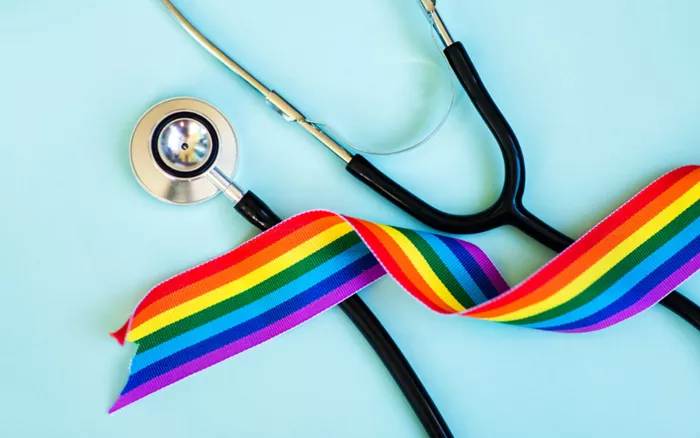A recent report from the Council of Europe titled “Right to the Highest Attainable Standard of Health and Access to Healthcare for LGBTI People in Europe” has highlighted significant disparities and systemic challenges in healthcare access for LGBTI individuals. The report outlines a series of recommendations aimed at Council of Europe member states to enhance the healthcare landscape for LGBTI communities, promoting a more inclusive and equitable system across Europe.
The findings reveal alarming health inequalities between LGBTI individuals and the general population, with increased rates of mental health issues largely attributed to widespread discrimination and marginalization. According to a 2020 survey by the EU Agency for Fundamental Rights (FRA), 16% of LGBTI respondents reported experiencing discrimination in healthcare settings, a figure that rose to 34% among transgender individuals. Furthermore, nearly half (46%) of LGBTI individuals chose not to disclose their sexual orientation or gender identity to healthcare providers. Contributing factors include cultural and social norms, anti-LGBTI rhetoric, institutional barriers, and inadequate training for healthcare professionals. Intersectional issues such as ethnicity, age, gender, disability, and socio-economic status further exacerbate these disparities.
The report notes that national legislation regarding LGBTI rights varies significantly across member states. Only eight countries—Belgium, Bosnia and Herzegovina, Denmark, Finland, Iceland, Montenegro, Serbia, and Spain—have comprehensive non-discrimination laws that encompass sexual orientation, gender identity, and sex characteristics. Additionally, the absence of inclusive data regarding the health needs of LGBTI individuals hampers effective policymaking; many health surveys fail to incorporate sexual orientation and gender identity data, rendering specific health issues faced by LGBTI communities less visible.
To address these challenges, the report identifies several promising practices such as standardized data collection, inclusive training for healthcare providers, and targeted programs to meet the unique health needs of LGBTI individuals. Specific recommendations include reviewing trans-specific healthcare legislation regularly, decentralizing services, and adhering to World Health Organization standards while emphasizing self-determination and informed consent.
Older LGBTI individuals face heightened discrimination due to historical stigma, which contributes to poorer health outcomes. Furthermore, young LGBTI individuals and those experiencing multiple forms of discrimination are particularly vulnerable to poor mental health outcomes driven by pervasive societal marginalization.
The report advocates for the integration of LGBTI-specific issues into national mental health policies while calling for a ban on “conversion” practices. It concludes that LGBTI individuals across Europe continue to face disproportionately worse health outcomes. The recommendations provided serve as a roadmap for member states to effectively address these pressing issues. Collaboration, data-driven approaches, and sustained funding are essential for achieving equitable healthcare for LGBTI persons.
This comprehensive report was prepared by the Council of Europe’s Committee of Experts on Sexual Orientation, Gender Identity and Expression, and Sex Characteristics for the Council of Europe Steering Committee on Anti-discrimination, Diversity and Inclusion (CDADI).
Related articles:
UK Doctor Admits to Attempted Murder, Injecting Poison Disguised
Rwanda Begins Vaccine Trials Amid Marburg Virus Outbreak
Nobel Prize In Medicine Honors Microrna Discoverers Victor Ambros And Gary Ruvkun


